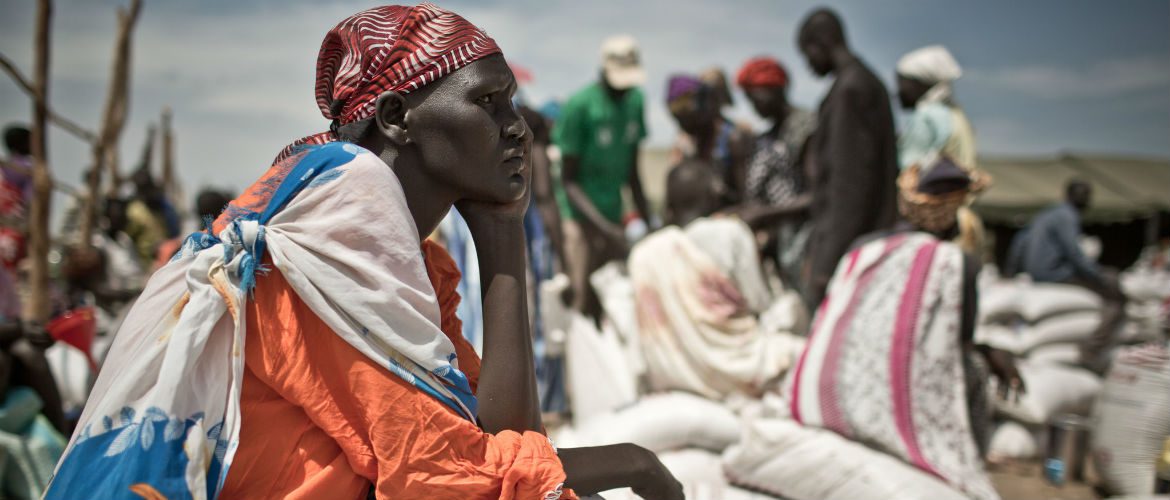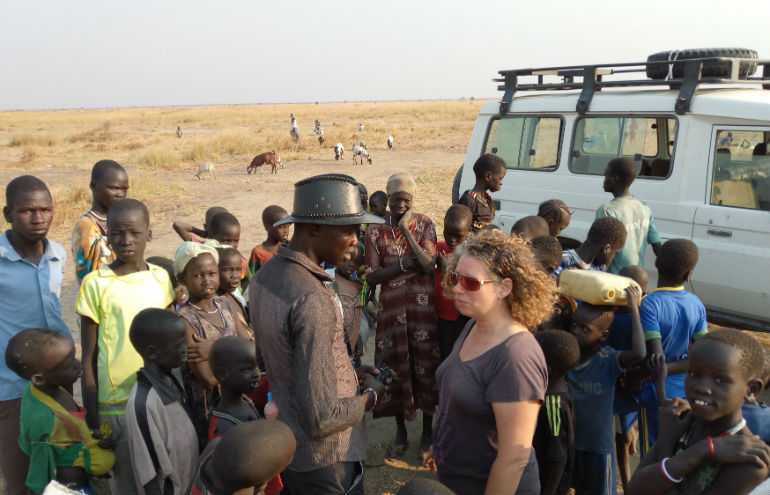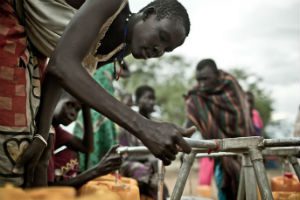
This entry was originally posted by Dorothy Sang, Oxfam Humanitarian Campaigns Manager, South Sudan, on 22 February 2017.
Famine in South Sudan has left 100,000 people on the verge of starvation and almost 5 million people, more than 40% of the country’s population, in need of urgent help.
Famine is a technical term and the formal declaration of famine in South Sudan means people there have already started dying of hunger.
Why is there famine in South Sudan?
The compounding effects of the conflict in South Sudan means that trade routes have been disrupted and the food security situation has been getting worse year on year, so that we are now seeing parts of the country declared to be in a state of famine.
The IPC readings show that communities in some of the areas most affected by the conflict, are the worst hit as they are unable to produce their own food and humanitarian organisations are unable to reach them.
This demonstrates the importance of all parties to the conflict to allow humanitarians to deliver aid to those who need it, in order to stop a worsening situation across the country.
Humanitarian access is critical
In this day and age, we should not be seeing people dying simply because there is not enough to eat. We should all take a share of the responsibility – from the impacts of climate change, to our inability to bring an end to the conflict in South Sudan, this has all led us to this point.
It is now imperative that all parties to the conflict allow humanitarian organisations to access those communities most in need, wherever they are in the country, and also to support longer terms solutions for peace and sustainable livelihoods.
We also need the international community to open its eyes to the suffering here in South Sudan and ensure that humanitarian as well as longer term responses are adequately funded and pressure is applied from all angles to bring this conflict to an end.
Oxfam is there

Just last week I was in Ganyiel, an area in Panijar county, one of the states that people fear will be next to fall to deadly famine. Our teams there travel for hours by canoe to access communities cut off from the world. People on these islands have fled unimaginable violence, and now are left hungry and at risk of deadly diseases such a cholera.
We know that where there are high levels of food insecurity, but also the presence of humanitarian actors, a famine can be averted.
Oxfam is working with others in South Sudan to reach the most vulnerable. With partners including the World Food Programme, we aim to address acute and chronic food insecurity. We aim to make sure that the most vulnerable people have enough nutritious food while also working with them to build and strengthen their livelihoods.
Some of the ways Oxfam is helping:
- Providing people with food directly through distributions
- Providing access to clean water for cooking and drinking
- Helping people to buy livestock and produce their own food for daily family consumption
- Supporting people to set up small businesses, and providing training, tools and inputs for agriculture and fish farming.
Where possible, we aim to source inputs through local traders, and work closely with them to build up viable markets to strengthen the local economy.
Will other areas of South Sudan slip into famine?
It is expected that almost half (47%) of South Sudan’s population will be in an emergency food shortage by July. The magnitude of this is unprecedented in the short history of the country.
If food prices continue to rise, access to land and farming supplies continues to be impeded, and humanitarian access remains limited, then food insecurity can only be expected to deteriorate further. The result would be wider spread famine.
What needs to happen now?
This is a man-made tragedy, and we are running out of time to avoid it getting worse.
In over 30 years working in the affected areas, Oxfam has never witnessed such dire need. The safe passage of humanitarian aid and humanitarian workers, delivering assistance and saving lives is imperative so that those who most need food and clean water can access it at this critical time.
Operating in a complex conflict environment like South Sudan means that communities are often out of reach for a variety of reasons, including arbitrary actions and bureaucratic impediments by state and non-state actors. However, too often we are unable to access communities because of heavy fighting. We therefore call on all parties to the conflict to ensure humanitarian organisations can reach those most in need safely.
Oxfam has been assisting populations in South Sudan since the 1980’s providing food security and water, sanitation and hygiene assistance. In the past year alone, Oxfam has helped over 600,000 people across the country with food and water distributions and longer-term aid.

Famine in South Sudan
Action is urgently needed to avert worsening famine conditions. You can help with a donation to our International Crisis Fund so we can respond in South Sudan and other regions around the world facing humanitarian crises.